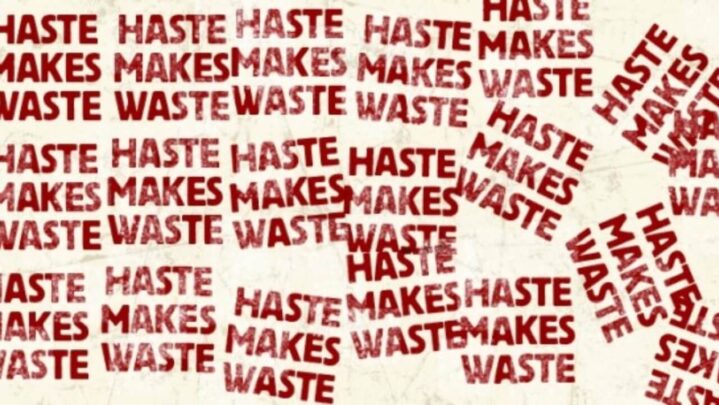Such outcomes are referred to as waste. If you work too quickly, you might have to start over after throwing out your previous work.
According to the saying, hasty decisions result in wasted effort.
When working, we shouldn’t move too quickly.
To avoid waste, we must begin cautiously, persevere, and work methodically.
We can accomplish more when we work slowly.
The most prevalent interpretation of the word “haste” is urgency, as in the need to finish a task. As in if we want to make it on time, we must move quickly. Quickly is another word for swiftness or speed. The word haste carries the connotation of moving quickly, hurrying up, or rushing in this situation.
Yet, haste frequently refers to a negligent or reckless speed. Here’s how Using words hastily leads to waste.
In this context, the term hasty is most frequently employed; a rushed choice is one that is believed to have been taken too hastily, maybe with unfavorable results. Hastily is an adverb that has the same meaning.
Where does the saying “haste causes waste” come from?
Haste makes waste initially in written form in the 1500s. It may have come from a longer saying that goes, “Haste causes waste, waste makes want, and want makes discord between the goodman and his wife.”
Haste produces waste is a regularly used idiom, despite the fact that most people haven’t heard it in its whole. Often, it is employed to urge someone to take their time in order to prevent errors or poor work.
Why do we want to avoid haste?
Because we perform less well when we are in a hurry, we should avoid acting hastily. Our physical and mental faculties aren’t working as well as they should. Hence, there is a higher likelihood of stumbling and making mistakes.





